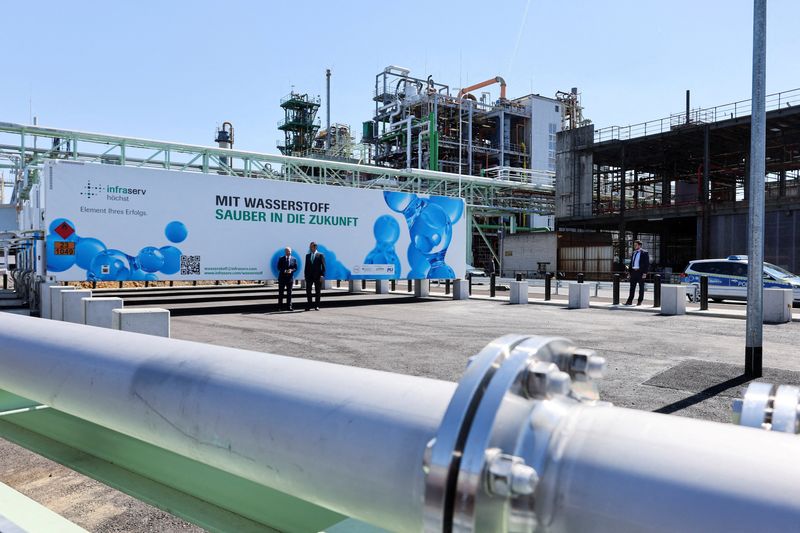Germany switches to hydrogen due to gas shortage
2022.12.29 06:51

Germany switches to hydrogen due to gas shortage
Budrigannews.com – German company Kelheim Fibers looked for other ways to keep its engines running as soon as Russian gas exports to Germany were first disrupted in June.
As a consequence of this, the Bavarian company, whose fibers are utilized in everything from teabags to tampons, will be able to use gas as an alternative starting in the middle of January.
The negative aspect is that it will result in an increase in carbon emissions. In the long run, the company is thinking about switching to hydrogen, which is a much cleaner energy source if it is produced with power from renewable sources.
According to the 87-year-old company’s managing director, Craig Barker, “We want to be one of the first large companies in Bavaria to switch to hydrogen.”
According to Barker, the company’s variable expenses now exceed those of its primary raw material by more than 60% to 70%.
Kelheim Filaments is one of numerous little and medium-sized organizations that structure the foundation of Europe’s greatest economy, and that are trying to enhance their energy blend to keep up with yield.
Berlin has been forced to reactivate or extend the lifespan of its coal-fired power plants as a result of Russia’s reduction in gas supplies to Germany following Moscow’s invasion of Ukraine in February, putting greenhouse emissions targets in jeopardy.
However, according to ifo economist Klaus Wohlrabe, the crisis may ultimately result in greener production.
Long-term reliance on fossil fuels has been demonstrated to be risky. So, businesses must reorient themselves at least in the medium term,” Wohlrabe stated.
Barker added that Kelheim Fibers, which has so far met 85 percent of its energy needs with gas, is in talks with stakeholders about importing hydrogen, with an anticipated annual consumption of about 30,000 tonnes beginning in 2025.
He added, “We definitely need infrastructure,” noting that a pipeline to connect to the German refinery Bayernoil and a port will be required to meet the company’s demand for hydrogen that cannot be met domestically.
The first hydrogen pipeline network in Germany was approved earlier this month by the Economic Affairs Ministry. Additionally, it revealed a strategy to assist small and medium-sized businesses in their transition to climate-neutral production, which includes expanding hydrogen infrastructure.
More Oil reserves continued to decline in U. S.-API
Utility industry association BDEW stated earlier this month that more is required to accelerate investments in hydrogen, including a Hydrogen Act to reduce bureaucracy and regulate the rapid ramp-up of hydrogen production.
Kerstin Andreae, president of BDEW, stated, “2023 must provide new impetus for investments in renewable energies, hydrogen, hydrogen-capable gas-fired power plants, and energy networks.”








